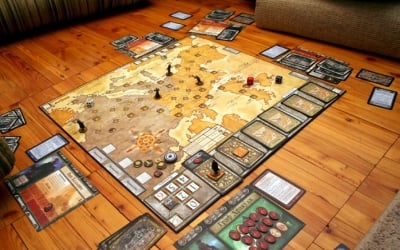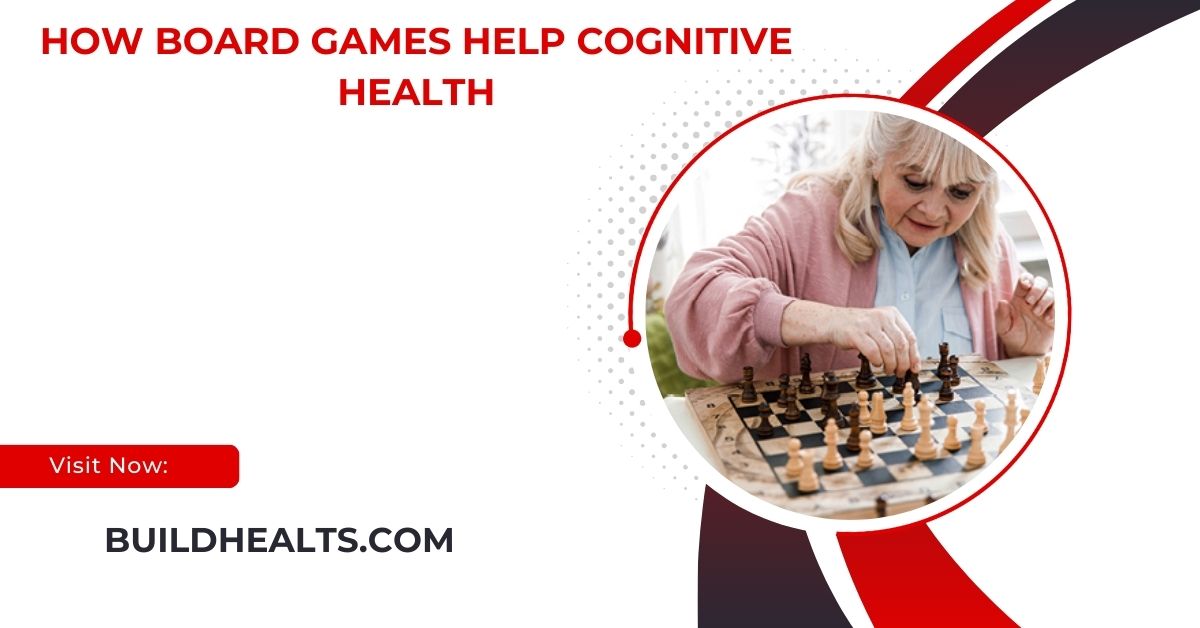Board games significantly enhance cognitive health by improving memory, problem-solving, and social interaction, making them a valuable tool for mental stimulation and well-being.
In this article, we will delve into the various ways board games contribute to cognitive health, covering their impacts on memory, problem-solving, social interaction, and overall mental well-being.
What Are Cognitive Skills?

Cognitive skills encompass a wide range of mental abilities that are essential for processing information, learning new things, and solving problems. These skills are vital for daily functioning and can be categorized as follows:
- Memory: The ability to retain and recall information, experiences, and skills. This includes both short-term memory (holding information for a brief period) and long-term memory (storing information for future use).
- Attention: The capacity to focus on specific stimuli while ignoring distractions. Attention is crucial for effective learning and task completion.
- Reasoning: The process of drawing conclusions, making judgments, and solving problems based on available information. It involves critical thinking and logical analysis.
- Problem-Solving: The ability to identify challenges and develop strategies to overcome them. This skill is important in everyday decision-making and planning.
- Language Skills: The capability to understand and use language effectively for communication, comprehension, and expression. Language skills are essential for social interaction and learning.
Maintaining and enhancing these cognitive skills is crucial for overall mental health and well-being. Engaging in activities that stimulate the brain, such as board games, can help improve these skills over time.
The Benefits of Playing Board Games:
Playing board games provides numerous benefits for cognitive, social, and emotional well-being.
- Cognitive Development: Board games enhance critical thinking and problem-solving skills by requiring strategic planning and decision-making. They also improve memory through rule recall and move tracking.
- Social Interaction: Board games foster face-to-face communication, strengthening relationships among friends and family. Cooperative games encourage teamwork and collaboration.
- Emotional Benefits: Engaging in board games can relieve stress and boost mood. Winning or overcoming challenges enhances self-esteem and confidence.
- Learning Opportunities: Many games have educational elements, improving knowledge in various subjects and developing important life skills like negotiation and patience.
- Inclusivity and Accessibility: With a wide range of games available, there’s something for everyone, making board games a great way to engage with people of all ages.
Also read: What Should I Track Everyday For Health – A Complete Guide!
The Impact of Board Games on Aging:
As people age, cognitive decline can become a concern. However, engaging in activities that stimulate the brain can help maintain cognitive health. Board games are an excellent way to keep the mind active, regardless of age.
Keeping the Mind Sharp:
For older adults, playing board games can help keep the mind sharp and reduce the risk of cognitive decline. Regular mental stimulation through games can improve memory, attention, and problem-solving skills.
- Scientific Evidence: Research has shown that older adults who engage in mentally stimulating activities, such as board games, are less likely to experience significant cognitive decline compared to those who do not participate in such activities. This makes board games an excellent choice for seniors looking to maintain their cognitive abilities.
Social Engagement for Seniors:

Board games also provide social engagement, which is crucial for mental health in older adults. Participating in group games encourages interaction and helps combat loneliness, leading to a happier and healthier life.
- Group Activities: Many senior centers and community organizations offer board game nights, creating a social outlet for older adults. These events can foster friendships and create a sense of belonging, contributing to improved mental well-being.
- Combating Isolation: Engaging in social activities like board games can help combat feelings of isolation and depression, which are common among older adults. Social interaction is essential for maintaining a positive outlook on life.
Choosing the Right Board Games:
Selecting the appropriate board games is crucial to maximizing their cognitive health benefits. Here are some key considerations to help you choose the best games for yourself and others:
Consider Age and Skill Level:
When choosing board games, it’s essential to think about the age and cognitive abilities of the players. Some games may be too complex for younger players, while others might not engage older adults effectively.
- Family-Friendly Options: Look for games that appeal to a broad age range, allowing family members of all generations to join in. This creates opportunities for bonding and shared experiences, enhancing relationships across age groups.
Also read: How To Get Health Insurance In Korea For Travel – A Traveler’s Guide to Insurance in Korea!
Opt for Games That Encourage Strategy:
Select games that require players to think critically, plan ahead, and make decisions. Strategic games help develop problem-solving and analytical skills.
- Examples of Strategic Games: Games like Carcassonne, Catan, and Ticket to Ride encourage players to strategize and think critically about their moves. These games keep players engaged and promote cognitive development.
Look for Social Interaction Opportunities:
Choose games that encourage teamwork, communication, and social interaction. Games that require players to work together or compete can enhance social skills and foster relationships.
- Cooperative Games: Consider games where players collaborate to achieve a common goal, such as Pandemic or Forbidden Island. These games encourage teamwork and can create a supportive environment for social bonding.
Mix Up Game Genres:
Incorporating a variety of game genres can keep gameplay fresh and exciting. Different types of games stimulate various cognitive skills and prevent monotony.
- Variety in Gameplay: Explore options like word games (e.g., Scrabble), strategy games (e.g., Chess), and party games (e.g., Codenames) to provide diverse experiences. This variety helps players develop a broader range of cognitive skills.
Test New Games Together:
Don’t hesitate to try out new games with friends and family. Exploring unfamiliar games can challenge players and encourage them to think in new ways.
- Shared Experiences: Trying new games together fosters collaboration and encourages discussions about strategies, enhancing the overall gaming experience and building connections among players.
By considering these factors, you can choose board games that not only provide entertainment but also promote cognitive health and strengthen social connections. Engaging in the right games can lead to fun and rewarding experiences for everyone involved.
Examples of Board Games That Benefit Cognitive Health:

Board games are great for boosting cognitive health. Games like Chess and Scrabble enhance strategic thinking and vocabulary skills, while Catan promotes resource management and negotiation. Cooperative games such as Pandemic improve teamwork and problem-solving abilities.
Additionally, Boggle and Azul sharpen pattern recognition and spatial reasoning. Playing these games regularly can help keep your mind sharp while providing enjoyable social interactions.
Tips for Incorporating Board Games into Your Routine:
Here are some quick tips for incorporating board games into your routine:
Set a Regular Game Night: Choose a specific day each week for family or friends to gather and play.
- Start Small: Begin with short games that can be played in 30-60 minutes.
- Mix and Match: Keep a variety of games on hand to suit different moods and try new ones regularly.
- Play During Downtime: Use lunch breaks or evenings for quick games.
- Create a Comfortable Space: Set up a cozy area for gaming and keep games easily accessible.
- Involve Technology: Explore game apps or host virtual game nights with friends.
- Encourage Participation: Invite friends over and create friendly competitions.
- Set Goals: Challenge yourself to play a certain number of games each month.
- Make It Educational: Choose games that promote skills like critical thinking and teamwork.
- Be Flexible and Have Fun: Enjoy the time spent together and celebrate wins, big or small.
FAQ’s
1. How Do Board Games Improve Cognitive Skills?
Board games enhance cognitive skills by promoting strategic thinking, memory recall, and problem-solving through engaging gameplay. They challenge players to think critically and adapt their strategies.
2. Are board games beneficial for older adults?
Yes, board games help keep the mind sharp and reduce cognitive decline in older adults. They provide mental stimulation and promote social engagement, which is vital for emotional well-being.
3. What types of cognitive skills do board games target?
Board games target various cognitive skills, including memory, attention, reasoning, problem-solving, and language skills. Engaging in these games can improve overall mental function.
4. How can I incorporate board games into my routine?
Incorporate board games by setting a regular game night and starting with short, simple games. Mixing different types keeps the experience fresh and enjoyable for everyone involved.
5. What are some recommended board games for cognitive health?
Recommended games for cognitive health include Chess, Scrabble, Catan, Pandemic, Boggle, and Azul. These games enhance strategic thinking, memory, and teamwork while providing entertainment.
Conclusion
In conclusion, board games significantly enhance cognitive health by improving memory, problem-solving, and social interaction. They provide essential mental stimulation, particularly for older adults, helping to prevent cognitive decline and foster social connections. Incorporating board games into regular routines can lead to improved mental well-being and enjoyable shared experiences.




